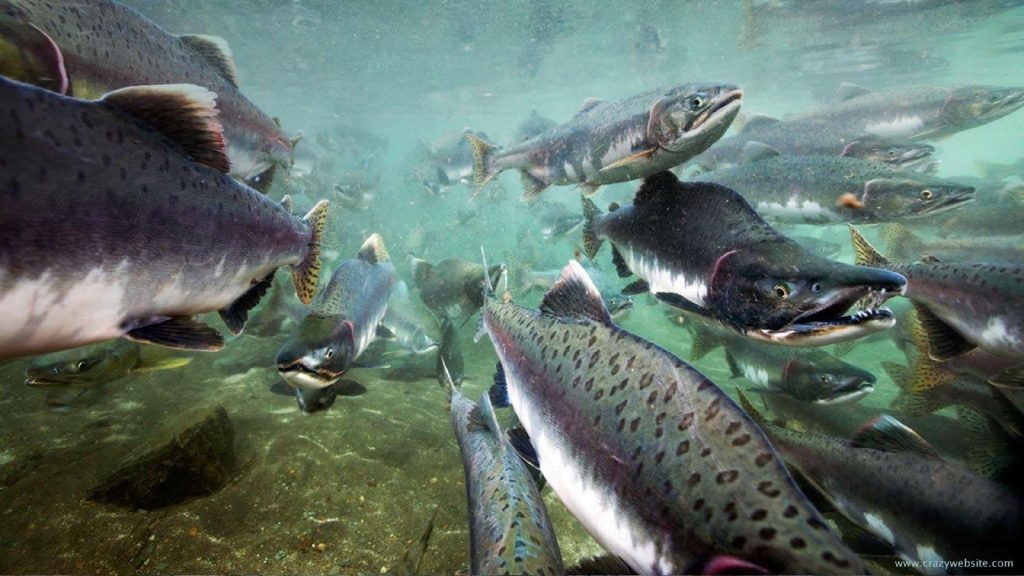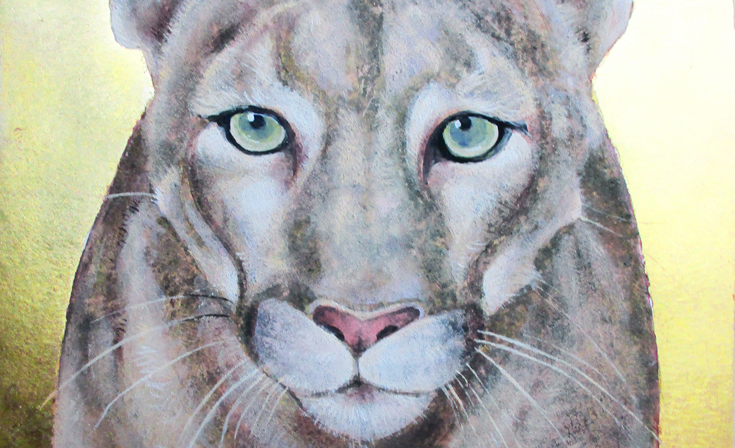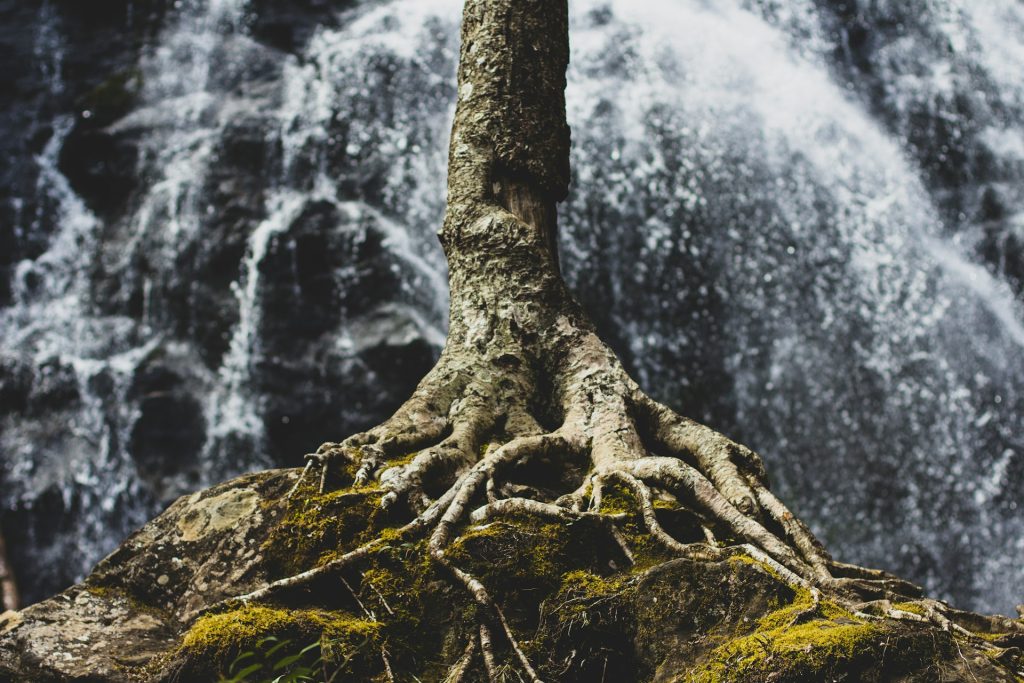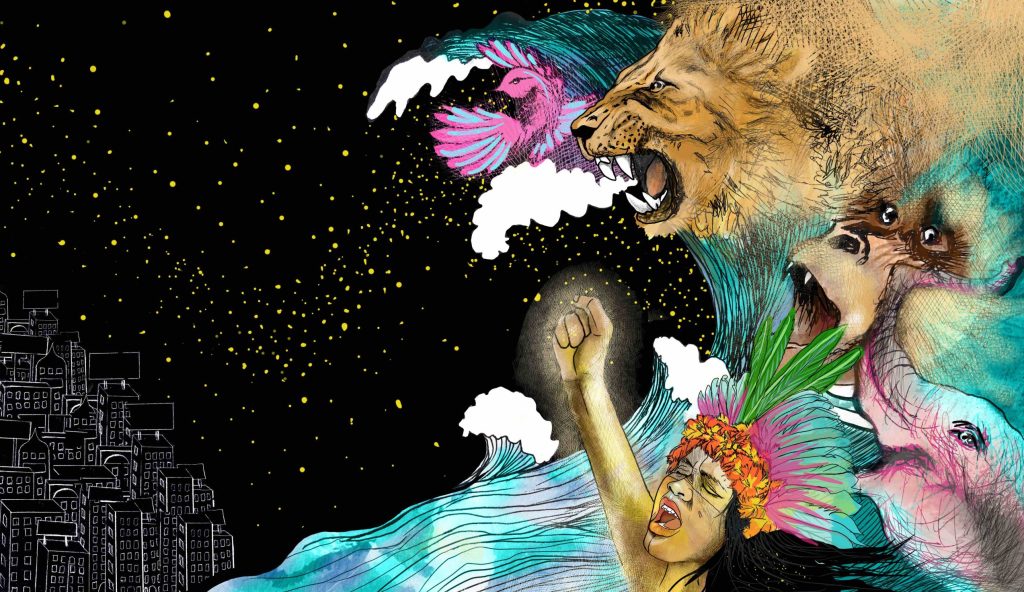Seeking the Honey of Life
“There is much that man could learn from the bees, but he does not have the patience.” – Karl von Frisch
Having built a new home, filled the larder with food, and started a family, would you leave it all behind and set off on a journey with no known end?
For us, this would be extraordinary behavior. For honeybees, though, it is entirely natural. When a bee colony has prospered through the spring, filling the combs with honey and brood, the urge to swarm sets in. On a sunny day in early summer more than half of the colony may set off with their queen, leaving an infant queen behind, not even hatched.
A swarm appears as a wild, chaotic cloud; the beating of so many tiny wings rises from a buzz to a roar. There is little danger of being stung, for the bees are full of honey and intent on their task. Yet the sight of swarming bees almost inevitably inspires fear in us. We do not want to be reminded that we too must sometimes abandon our settled past, and seek an unknown future.
It is a kind of death, and bees are often associated with death in folklore; in Celtic tradition the soul was even thought to leave the body in the form of a bee. The custom of “telling the bees” of a death in the family was taken very seriously; if not solemnly informed of the event, they might leave their hives, never to return.
It is no wonder that bees should be considered guardians of that unknown country. Bees willingly “die” to their old hive in order that the colony may be reborn. The drive for new life is the only law they know. We grasp what we already have, and become imprisoned by it; the bees give everything away, and are free.

When they swarm, their final destination is not yet decided. At first, they do not go far from the old hive, but will cluster nearby. This is the moment when beekeepers may recover the colony and settle it in a new hive. If left to themselves, they begin to send out explorers who search for a suitable home, returning to “dance” their findings on the surface of the cluster.
These movements, described by their discoverer Karl von Frisch in The Dancing Bees, enable the bees to communicate their findings to one another with incredible precision. The direction, speed, and liveliness of the scout bee’s movement all convey information that is received and interpreted by the watchers, who learn from her where to fly. Even when forced by obstacles to fly a roundabout route, they are able to arrive at the correct location, up to two miles away. How exactly these tiny creatures are able to calculate time and distance so accurately is still not understood.
This ingenious system of communication seems to embody what we usually do not attribute to other creatures than ourselves: “an intelligence independent of instinct.”1 Scientists are still baffled by it. The more we study what happens within the hive, the more an intelligent being appears to be at work, not in the individual bees, but between and among them. As we scurry about on our isolated, self-oriented quests, could we not stop to consider whether, if we let ourselves become aware of it, a higher intelligence might speak to us? As Karl von Frisch remarks, “There is much that man could learn from the bees, but he does not have the patience.”2
If not captured by a beekeeper, the swarm will settle in any protected place where they can build new combs and raise their young. In their new home, the bees dance again, this time to tell one another about food sources. They now must build up honey for the winter, or the colony will perish.
Though they knew nothing of the remarkable “language” of the bee dances, the ancients recognized the creation of honey as wisdom made manifest. The Bible is full of it:
“My son, eat thou honey, because it is good; and the honeycomb, which is sweet to
………….thy taste;
So shall the knowledge of wisdom be unto thy soul…”3
It is notable that in gathering nectar, the honeybee need not destroy or injure any living thing. A Buddhist proverb advises, “As the bee collects nectar and departs without injuring the flower, or its color or scent, so let a sage dwell in the community.” Indeed, the bee not only does no harm, but performs a vital service in carrying pollen from one flower to another. The true seeker, she reminds us, is one who serves the whole.
After taking in the substances offered up by the plant, the bee further transforms them within her own body, not in the stomach but in a special honey sac. The honey is carefully spread in the comb so that water can evaporate; the bees know the exact moment when it is ready to be capped without fermenting.
The transformed nectar takes on an eternal quality, remaining sweet, fragrant and golden indefinitely without preservatives. It is literally food fit for the gods; it nourished Zeus in his cradle, and has been found in the tombs of the Egyptian pharaohs. The Vedas describe it as an attribute of the Asvins, twin gods of light. For the bees, of course, it is life itself.
Sweet things are no longer a rarity or a luxury to us today. But when we taste a drop of honey, we may try to recapture the reverence and wonder that once arose from this experience. It is the product of prodigious feats of navigation and tireless labor, a living symbol of the sweetness that springs from wholehearted entry into life, seeking only to transform what one meets and offer it back again. Truly, there is much we may learn from the bees.
References
[1] William Longgood, The Queen Must Die (New York: Norton, 1985), p. 203.
[2] Karl von Frisch, The Dancing Bees (New York: Harcourt, Brace, 1966), p. 148.
[3] Proverbs 24:13-14.






